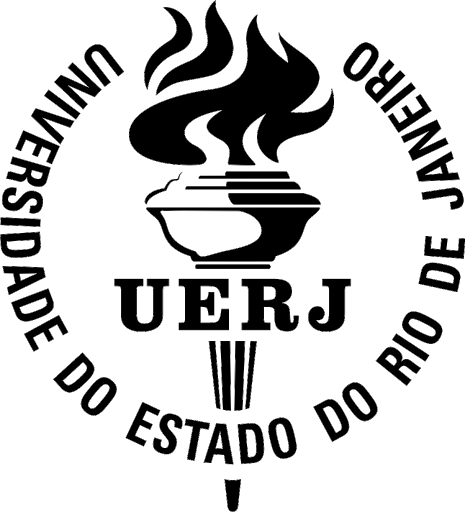 |
UNIVERSIDADE DO ESTADO DO RIO DE JANEIRO |
| UNIDADE ACADEMICA FACULDADE DE DIREITO |
LINHA DE PESQUISA / ĂREA DE CONCENTRAĂĂO Direito Penal / Cidadania, Estado e Globalização |
| NOME DO DOCENTE ARTUR DE BRITO GUEIROS SOUZA - - |
CATEGORIA Eletiva |
CARGA HORARIA 60h(sessenta horas) |
CREDITOS 04(quatro) |
| NOME DA DISCIPLINA / DIA / HORĂRIO Criminologia EconĂŽmica |
DISTRIBUICAO DE CARGA HORARIA | ||
| TIPO DE AULA Teorica Pratica |
CARGA HORARIA 60h(sessenta horas) |
CREDITOS 04(quatro) |
|
| TOTAL | 60h(sessenta horas) | 04(quatro) | |
| PRE-REQUISITOS ************** |
DISCIPLINA DO CURSO Mestrado e Doutorado |
||
| EMENTA ConsideraçÔes introdutórias sobre a Criminologia. Criminologia econÎmica, criminologia empresarial e criminologia ocupacional. Origens da Criminologia econÎmica. O pioneirismo de Edwin Sutherland. Teoria da associação diferencial. Técnicas de neutralização de culpa. Teorias da escolha racional. Teoria da anomia ou da tensão. Teoria das oportunidades delitivas. Teoria do controle social. Estrutura empresarial criminógena. Perfil do criminoso econÎmico. Criminologia econÎmica e as estratégias de Compliance. |
| BIBLIOGRAFIA - APEL, Robert; PATERNOSTER, Raymond. Understanding Criminogenic Corporate Culture: What White-Collar Crime Researchers Can Learn from Studies of the Adolescent Employment-Crime Relationship. In The Criminology of White-Collar Crime. Simpson, Sally S.; Weisburd, David (Ed.). New York: Springer, 2009. - ARIELY, Dan. A mais pura verdade sobre a desonestidade. Rio de Janeiro: Elsevier, 2012, pp. 11-46. - BECKER, Gary S. Nobel Lecture: The Economic Way of Looking at Behavior. In The Journal of Political Economy. Vol. 101, n. 3. Chicago: University of Chicago Press, 1993. - BEIRNE, Piers. Inventing Criminology. Essays on the rise of homo criminalis. Albany: State University of New York, 1993, pp. 65-110. - BENSON, Michael L., VAN SLYKE, Shanna R., CULLEN, Francis T. Core themes in the study of White-Collar Crime. In The Oxford Handbook of White-Collar Crime. ___. Oxford: Oxford University Press, 2016, pp. 1-21. - BONGER, W. A. Criminalite et conditions economiques. Amsterdam: Maas & Van Suchtelen, 1905. - BRAITHWAITE, John. Enforced Self-Regulation. In Responsive Regulation. Transcending the Deregulation Debate. ____.; Ayres, Ian. New York: Oxford University Press, 1992, p. 101 e segs. - CHEN, Frances R. et al. Biosocial Bases of Antisocial and Criminal Behavior. In The Handbook of Criminological Theory. PIQUERO, Alex R. (Ed.). Chichester: Wiley Blackwell, 2016, pp. 355-379. - DeLISI, Matt; VAUGHN, Michael G. Correlates of Crime. In The Handbook of Criminological Theory. PIQUERO, Alex R. (Ed.). Chichester: Wiley Blackwell, 2016, pp. 18-36. - ERP, Judith van. The organization of Corporate Crime. Administrative Sciences, Vol. 8, n. 36, 2018, pp. 1-12. - KAISER, Gunter. Introduccion a la criminologia. 7Ș ed. Trad. Rodriguez Nuńez. Madrid: Editorial Dykinson, 1988. - KUBRIN, Charis E., WO, James C. Social Disorganization Theory's Greatest Challenge. In The Handbook of Criminological Theory. PIQUERO, Alex R. (Ed.). Chichester: Wiley Blackwell, 2016, pp. 121-136. - LARSSON, Paul. Regulating Corporate Crime: From Punishment to Self-Regulation. In Journal of Scandinavian Studies in Criminology and Crime Prevention. Vol. 13, Sup. 1, Helsinki, 2012. - NIETO MARTiN, Adan. Cumplimiento normativo, criminologia y responsabilidad penal de personas juridicas. In Manual de cumplimiento penal en la empresa. ____ (Dir.). Valencia: Tirant lo Blanch, 2015. - PATERNOSTER, Ray, LOUGHRAN, Thomas, WEISS, Douglas. Deterrence. In The Handbook of Criminological Theory. PIQUERO, Alex R. (Ed.). Chichester: Wiley Blackwell, 2016, pp. 50-74. - PEASE, Ken. Crime prevention. In The Oxford Handbook of Criminology. Maguire, Mike et al. (Ed.). Oxford: Clarendon Press, 1994. - ROYER, Guillaume. Lefficience en droit penal economique. etude de droit positif a la lumière de lanalyse economique du droit. Paris: LGDJ, 2009. - SERRANO MAiLLO, Alfonso. Las teorias del aprendizaje social. In Teoria Criminologica. La explicacion del delito en la sociedad contemporanea. Madrid: Dykinson, 2017, pp. 203-239. - SHECAIRA, Sergio Salomao. Criminologia. 2Ș ed. Sao Paulo: Revista dos Tribunais, 2008. - SIMPSON, Sally; PATERNOSTER, Raymond. A Rational Choice Theory of Corporate Crime. In Routine Activity and Rational Choice. Clarke, Ronald V.; Felson, Marcus. New Brundswick: Transaction Pub., 2008. - SOUZA, Artur de Brito Gueiros, JAPIASSu, Carlos Eduardo A. Criminologia e delinquencia empresarial. In Quastio Iuris, Vol. 10, n. 02, 2017, pp. 1031-1051. - SOUZA, Artur de Brito Gueiros. Direito Penal Empresarial. Sao Paulo: LiberArs, 2021. - SUTHERLAND, Edwin H. White-collar crime (the uncut version). New Haven: Yale University Press, 1983. - SUTHERLAND, Edwin H.; CRESSEY, Donald R. Principles of Criminology. 11th ed. New York: General Hall, 1992. - SYKES, Gresham M., MATZA, David. Techniques of neutralization: A theory of delinquency. American Sociological Review, Vol. 22, n. 06, pp. 664-670. - TRIPLETT, Ruth, UPTON, Lindsey. Labeling Theory: Past, Present and Future. In 237-276. - VAUGHAN, Diane. Criminology and Sociology of organizations. Crime, Law & Social Change, Vol. 37, pp. 117-136. |
| OBSERVACOES GERAIS Seminårios de discussão de textos e elaboração de trabalho final. |